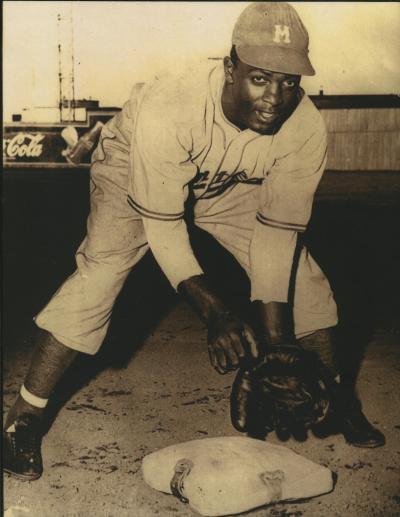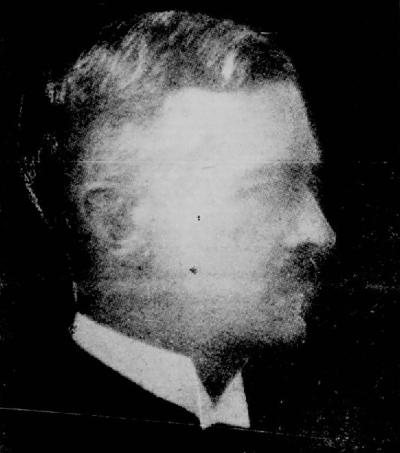Founded in 1983, the Collectif des femmes immigrantes du Québec (Le Collectif) advocates on behalf of immigrant women and supports their efforts to integrate into Quebec society and the labour market.
In the early 1980s, women working with newcomers saw a need for an umbrella organization to defend the rights of immigrant women. In 1983, seventy-five women from various community organizations founded Le Collectif. Among them was Aoura Bizzarri, who has headed the organization ever since.
Aoura’s sun
CFIQ 3
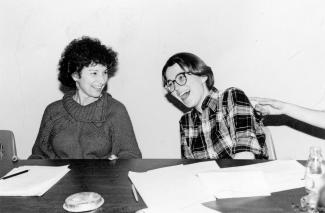
Interviewed in her office on rue Boyer, Aoura shares her memories. It all started with a YMCA training session for community workers. Women from different cultural backgrounds proposed forming a coalition to bring together their various organizations. “The idea came up in a discussion about the situation around HIV/AIDS,” recalls Aoura. At the time, Montréal was experiencing a wave of racism aimed especially at the Haitian community, which was falsely suspected of spreading the previously unknown virus. Aoura suggested creating a new umbrella organization: “We needed to stand together. Any one of us might be targeted the next time.” To illustrate her idea, she drew a circle, with lines like rays of sunshine symbolizing each of the immigrant organizations: Italian, Portuguese, Greek, and so on. The circle at the centre stood for the new entity that would bring them together. “That’s why people called it ‘Aoura’s sun’ at first!”
Le Collectif’s objectives were to strengthen solidarity among immigrant women, improve their living conditions, and raise public awareness of their experiences. The organization offered training and resources for service providers and activities for its members. It also made demands on behalf of women with immigrant backgrounds. Le Collectif’s origins were shaped by Montréal’s rapidly expanding community movement and a current of 1980s feminism that Denyse Baillargeon described as a “‘service feminism’ that complemented or replaced state action.”
CFIQ 7
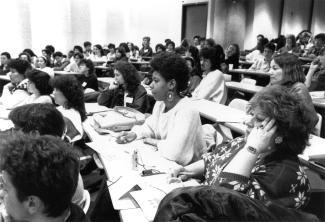
Le Collectif initially opened its doors on rue Christophe-Colomb, in a building that was already home to a number of community organizations. Among them was La Maisonnée, Montréal’s first multi-ethnic service for newcomers to Quebec. A few years later, Le Collectif acquired a building on rue Boyer, occupying the ground floor and, eventually, the entire building. In 2013, Le Collectif opened a second office near Saint-Michel metro station.
A focus on advocacy
CFIQ 21
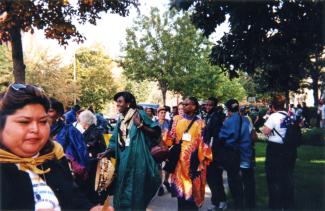
In the 1980s, Le Collectif became a prominent voice for immigrant women. There was much work to do to bring to light the issues these women were facing. In 1985, Le Collectif obtained a seat for immigrant women at Décisions 85, a conference on the economic security of Quebec women. Women’s groups, stakeholders from the socio-economic sectors, and government representatives met to address the economic insecurity faced by women, and for the first time in Quebec, decision-makers acknowledged the specific challenges faced by immigrant women. Le Collectif’s main demand was for access to French-language training. “After 1985, people started calling on us to represent the interests of immigrant women. Before that, a woman from the Ministry, who wasn’t an immigrant, would speak on their behalf . Believe it or not, she was a nutritionist, not an expert on immigration!” recalls Aoura. After Décisions 85, Le Collectif continued its advocacy work and became active on various committees. It also appeared on television and radio, including in a series of capsules translated into seven languages and broadcast by Radio Centre-Ville.
In 1995, Le Collectif took part in the Bread and Roses March to protest women’s poverty. Over the course of ten days, marchers made their way from Montréal, Longueuil, and Rivière-du-Loup to Quebec City. On June 4, some 15,000 people converged outside the National Assembly, where they presented their demands to the premier, Jacques Parizeau.One of Le Collectif’s demands was heard: the government agreed to retroactively reduce the spousal sponsorship period for immigrant women from ten years to three. It was a big win, given that economic dependency put these women at greater risk of conjugal violence. “The concession was insignificant in terms of government spending,” says Aoura, “but for immigrant women who were living in situations of vulnerability, it meant a wait of three years, not ten. It was the only one of our demands that was met, and it was met only because we were part of the movement that organized the march.
Filling fridges
CFIQ 15a
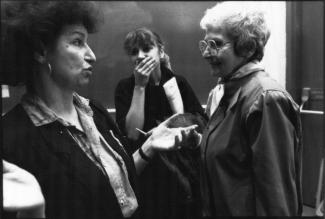
In the 1990s, Le Collectif’s role gradually evolved as it began focusing on employability as a key to economic integration. “It was one thing to let women know their rights, but at a certain point, when your fridge is empty, that isn’t enough...” recalls Aoura. “These women were just trying to make ends meet. When your fridge is empty, social integration isn’t a priority. You’re worried. You’re in survival mode.” Le Collectif began developing tools to help immigrant women find jobs and improve their economic situation. Although immigrant women were, on average, more educated than women born in Quebec, a higher share of immigrant women were unemployed or working low-paid jobs.
Le Collectif began offering services to men as well. “When we started talking about employment, women would show up with their sons or husbands. We were an openly feminist organization. But the feminism of immigrant women at the time, and maybe even today, was not yet as fully assumed ...” says Aoura. “And employment is not just a women’s issue. In the 1990s, we started to provide pre-employment training for all immigrants, both women and men.” The organization’s Centre des femmes, meanwhile, continued to serve only women, accompanying them in their new lives.
Le Collectif in 2018
CFIQ 17
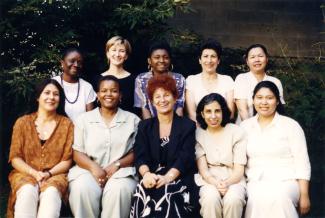
Today, in 2018, Le Collectif’s actions are focused on three main areas: the Centre des femmes, integration support, and job readiness. The women’s centre provides support for all women, regardless of their residency status and how long they have lived in Canada. “If you’re a woman, you’re welcome here,” says Aoura. “Once in a while, we even see one or two Québecoises. An Indigenous woman came by for a bit as well.” Nonetheless, the majority of women the Centre works with have an immigrant background.
What challenges do immigrant women face in 2018, and how have the issues evolved since Le Collectif’s founding? Aoura thinks for a moment, then says: “The problems are the same. There are perhaps more support organizations for immigrant women today than there were thirty years ago. And the Ministère de l’Immigration has introduced programs to facilitate integration. But there’s still a lot of work to be done.”
BAILLARGEON, Denise. Brève histoire des femmes au Québec,Montréal, Boréal, 2012, 281 p.
COLLECTIF DES FEMMES IMMIGRANTES. Être immigrante au Québec, des femmes s’organisent, Montréal, Collectif des femmes immigrantes, 1985.
COLLECTIF DES FEMMES IMMIGRANTES. Femmes immigrantes. L’enjeu des années 1990, Montréal, Collectif des femmes immigrantes, 1990.
COLLECTIF DES FEMMES IMMIGRANTES. À la recherche de l’équité raciale, Montréal, Collectif des femmes immigrantes, 1991.
COLLECTIF DES FEMMES IMMIGRANTES. Où sont les emplois de demain?, Montréal, Collectif des femmes immigrantes, 1993.
COLLECTIF DES FEMMES IMMIGRANTES. Je ne suis pas raciste, mais... Cahier de réflexion et de sensibilisation sur les relations interculturelles, Montréal, Collectif des femmes immigrantes, 1994.
DE KONINCK, Maria, et autres. « Interventions féministes : parcours et perspectives », La recherche sociale et le renouvellement des pratiques, Vol. 7, no 2, automne 1994.
NORMANDIN, Amélie. Associations de femmes immigrantes à Montréal : participer, appartenir, être reconnues : une voie d’intégration symbolique à la société locale, Mémoire (M.A.), Université de Montréal, 2010, 146 p.
https://papyrus.bib.umontreal.ca/xmlui/handle/1866/4433


